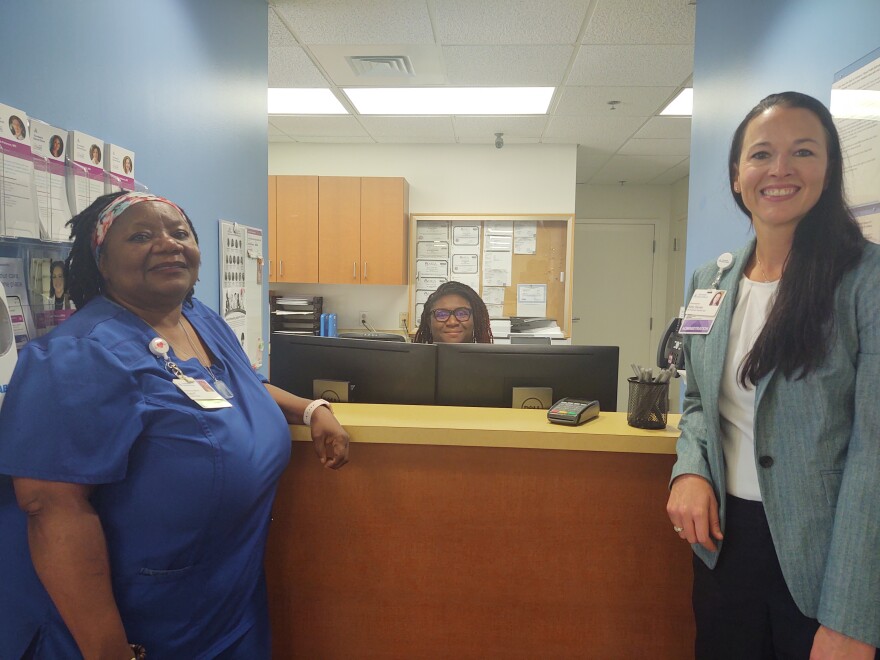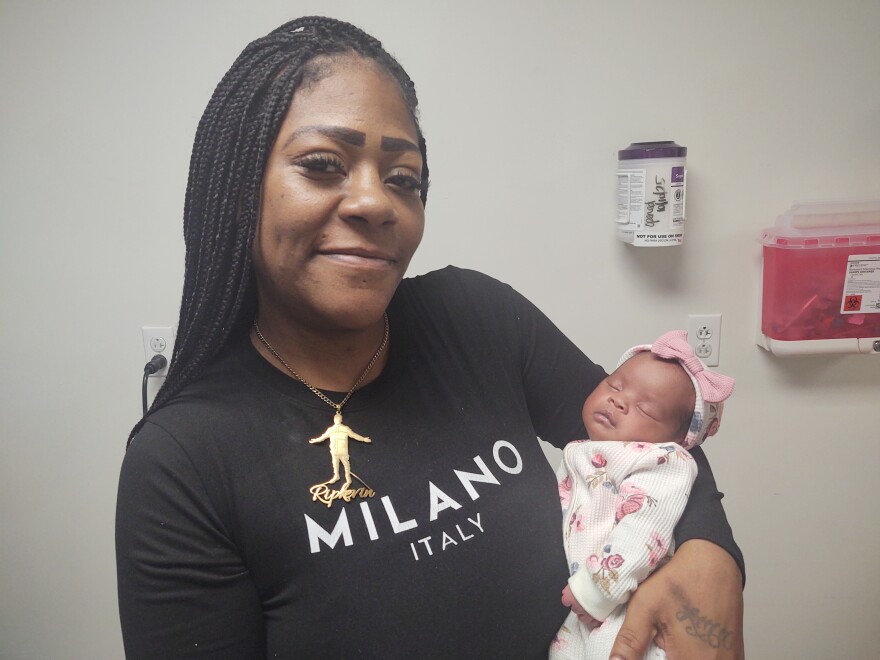It's now easier to connect new and expecting mothers in Northwest Florida to the resources they need before and after childbirth.
Ascension Florida hospitals, including Ascension Sacred Heart Pensacola and Ascension Sacred Heart Emerald Coast in Northwest Florida, are benefitting from a state grant to launch a regional telehealth maternity care program.
In Pensacola, the Ascension Sacred Heart Maternity and Women's Health Center is open for business 24/7. It connects patients with a team of doctors and specialists, delivering a range of women's health care, including wellness exams, and prenatal and high-risk pregnancy care.
On this day, there's a steady flow of women, some pregnant and some new mothers, coming in for appointments through the maternity care program, which began in 2021.
ALSO READ: Florida grants Ascension $7.8 million to expand maternal telehealth
"With this program, we're enrolling patients that we identify that do need a little more support than others," said Kelly Davies, women's obstetrics outpatient director for Ascension Sacred Heart. "So, you can have a mom that has all the resources they need and they're making all their appointments and everything's fine; we're still here to support them. But these are the patients that really need that extra support, that extra layer of care that we're going to provide to help them along the way."
Davies says the goal of the program is to eliminate barriers to care.
"The top barriers that we see are transportation, insurance, lack of insurance or pending insurance, also hesitancy to care," she said. "People that are just a little wary of even trusting the health care system or saying, 'Oh, I really don't need to come in that much,' or they just might not fully understand the importance of prenatal care and what that can do for them to have a healthy pregnancy and to have a healthy baby."
Now, in addition to the services already available, a telehealth component is being added to the program to increase access to services virtually.
"Trying to meet the person where they are, not replacing the required in-person visits that they need for their prenatal visits, but complementing that with additional care," Davies explained.

That includes referrals to wraparound services, such as housing and transportation; connection to medical devices, such as scales and glucose monitors; and health literacy information and education.
"If you have a patient that has diabetes and is not having a proper diet or whatever, the nutritionist we refer her to will be able to work with her and also provide some education to the patient, sometimes teaching them how to use medical supplies," said patient health navigator Kate Peabody.
It's her job to connect patients with such services, and she can now help even when in-person visits aren't possible.
"But if you get her on the smartphone and they're talking, the nutritionist can say, 'Here, this is what you do; you can put your strips here,' and demonstrate for her to be able to use it," Peabody stated. "What that does is it cuts off that person having to go in-person to that visit that she may not have transportation to be able to do that. She may not have somebody to watch her child for her to be able to do that."
The program has proven to be crucial for Latasha McCullers, a mother of nine, who stops in to say hello to Peabody with her 11-day-old baby Nova.
"She was a high-risk pregnancy," McCullers began. "I delivered her in 35 weeks and six days. I spent 41 days in the hospital due to the high-risk pregnancy. I wore a heart monitor because I had a complication during that stay. I had her by cesarean section."
McCullers said she was enrolled with the program during her previous child, who is now 2, and because she has chronic high blood pressure and a history of preeclampsia going into the pregnancy, she was motivated to come back.
"The women's center has helped me a lot. Especially by me being high-risk, I made sure not to miss any of my appointments. Ms. Peabody helped me if I needed transportation," said McCullers. "I haven't tried telehealth yet, but I do plan on trying it. But I'd rather come in person just to see their faces."

Despite being about four weeks early, McCullers said her baby, Nova, weighed 5 pounds, 11 ounches. She proudly added that thanks to the care they received, Nova didn't spend a day in neonatal intensive care, and they both left the hospital two days after the birth.
According to Davies, this is the kind of success they're working to achieve to address the persistent challenges Northwest Florida faces in maternal and infant health, including higher infant mortality rates compared to state and national averages.
She shared data from the 355 patients enrolled in the program in the last 12 months.
"Seventy-six percent of those patients attended more than eight prenatal appointments; 88% delivered babies born at term, which is 37 weeks or above; 80% were delivered with healthy birth weights; and only 2% experienced a severe obstetrical complication," she said, explaining that these are very good numbers and they're looking to make them better.
Now, thanks to the partnership with the Florida Department of Health, the telehealth program will be expanding, with a goal of enrolling 500 patients a year all across the region, not only in Escambia, but also Santa Rosa, Okaloosa, and Walton counties.
That means a whole team of patient navigators to serve the region, including one that will be working out of a new Emerald Coast location.
Copyright 2025 WUWF




